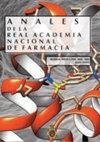科学中的认识论和本体论:人工智能的挑战
Q Pharmacology, Toxicology and Pharmaceutics
Anales De La Real Academia Nacional De Farmacia
Pub Date : 2023-09-30
DOI:10.53519/analesranf.2023.89.03.09
引用次数: 0
摘要
可预测性和可理解性之间的差距威胁着整个科学项目,因为由来源各异的海量数据提 供的过程数学模型提供了异常精确的结果,但同时却隐藏了对过程的解释。本体论中关于 "我们知道什么 "的知识与认识论中关于 "我们如何知道 "和 "我们知道多少 "的知识在科学中同样重要。人工智能(AI)涉及对智能思维和行为的内在机制的科学理解,以及这些机制在机器中的体现,这些机器经过创造者的训练,可以进行常规意义上的推理。它的 "弱 "表述是指使用复杂的计算机程序,其设计目的是补充或协助人类推理,以解决或完成计算、系统维护、识别各种图像、设计、分析数据模式等复杂问题,其中许多问题用传统程序几乎无法解决;但所有这一切都不包括人类的智商或伦理能力,这将是目前尚不存在的 "强 "人工智能的主题,它将等同于甚至超过人类的智商。人工智能 "生成 "技术的普及,可以从先前的信息中创造出内容--文字、图像、音乐或视频,以及许多其他领域的内容--这有助于巩固当前人工智能超越人类推理水平的错误观念,并加剧向人们传播虚假信息和负面成见的风险。人工智能的语言模型并不是通过模仿生物大脑来工作的,而是基于从不同来源的大型数据库中寻找逻辑模式,而这些数据库并不总是更新或清除谬误、错误或误差。概念或事实偏见,既有非自愿的,也有自利的。而科学中使用的人工智能对这些局限性和偏见并不陌生。一个特别敏感的问题是,使用生成式人工智能撰写甚至发明的科学文章有可能不被世界上最负盛名的科学期刊的同行评审员所注意,这就指向了一个更深层次的问题:同行评审员。审稿人往往没有时间对稿件进行彻底审查,以发现问题,而且在很多情况下,他们也缺乏足够的计算资源和专业培训。本文章由计算机程序翻译,如有差异,请以英文原文为准。
Epistemology and ontology in Science: the challenge of Artificial Intelligence
The gap between predictability and comprehensibility threatens the entire scientific project because mathematical models of processes, fed by enormous amounts of data of very diverse origin, provide exceptionally precise results but, at the same time, hide the explanation of the processes. The knowledge of “what we know” of ontology is as relevant in science as that of “how we know” and “how much we know” of epistemology. Artificial intelligence (AI) involves the scientific understanding of the mechanisms underlying intelligent thought and behavior, as well as their embodiment in machines trained by their creators to reason in a conventional sense. Its “weak” formulation refers to the use of complex computer programs, designed with the purpose of complementing or assisting human reasoning to solve or complete complex problems of calculation, system maintenance, recognition of all types of images, design, analysis of data patterns, etc., many of which would be practically unapproachable using conventional procedures; but all this without including human sentient or ethical capabilities, which would be the subject of a – at the moment – non-existent “strong” AI, that would equal or even exceed human sentient intelligence. The popularization of “generative” AI, developed to create content – text, images, music or videos, among many other areas – from previous information, is helping to popularly consolidate the erroneous idea that current AI exceeds reasoning human level and exacerbates the risk of transmitting false information and negative stereotypes to people. The language models of artificial intelligence do not work by emulating a biological brain but are based on the search for logical patterns from large databases from diverse sources, which are not always updated or purged of falsehoods, errors or errors. conceptual or factual biases, both involuntary and self-serving. And the AI used in science is no stranger to these limitations and biases. A particularly sensitive issue is the possibility of using generative AI to write or even invent scientific articles that go unnoticed by the peer reviewers of the most prestigious scientific journals in the world, pointing to an even deeper problem: peer reviewers. Reviewers often do not have the time to review manuscripts thoroughly for red flags and, in many cases, they also lack adequate computing resources and specialized training.
求助全文
通过发布文献求助,成功后即可免费获取论文全文。
去求助
来源期刊

Anales De La Real Academia Nacional De Farmacia
Pharmacology-
CiteScore
0.13
自引率
0.00%
发文量
7
期刊介绍:
The Anales de la Real Academia Nacional de Farmacia� embraces all aspects of pharmaceutical sciences and is a quarterly journal that publishes basic and applied research on pharmaceutical sciences and related areas. It is a medium for reporting selected original and significant contributions to new pharmaceutical knowledge.
 求助内容:
求助内容: 应助结果提醒方式:
应助结果提醒方式:


